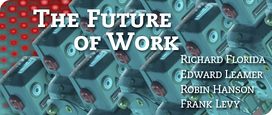I agree with Robin that Americans have little demand for an abstract economic equality. But that is not the issue. The issue begins with people measuring their economic circumstances against where they reasonably expect to be. For example, if you look at the May 2006 economic polls of the American Research Group, 52 percent of respondents say their household economic situation is good, very good, or excellent, while 46 percent say their household economic situation is bad, very bad or terrible. Looking to the future, 9 percent expect their household economic situation will be better a year from now while 54 percent expect their household economic situation will be worse. I appreciate the effect of gas prices, etc., but I suspect these are not terrific numbers for the fifth year of a recovery in which labor productivity has risen by more than 20 percent in total.
In these circumstances, we are likely to see what Robin might call a derived demand—a political sentiment that the costs of globalization and technology be shared more equally.

